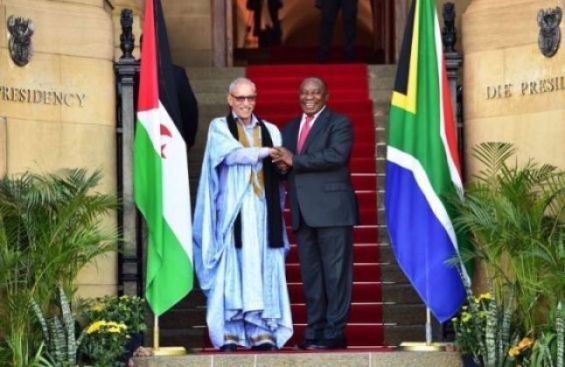The Polisario Front's ambition to establish a new state in North Africa is gradually diminishing, according to the Institute for Security Studies (ISS), a South African research institute. The ISS highlighted that Morocco's proposal for autonomy in the Sahara has been acknowledged by major nations as the only viable solution to the long-standing conflict.
Polisario's continuous decline
Founded in 1991 and headquartered in Pretoria, South Africa, with regional offices in Addis Ababa, Ethiopia; Dakar, Senegal; and Nairobi, Kenya, the institute emphasized that the Polisario Front is «gradually but steadily losing ground in its long battle for independence from Morocco».
The institute, which aims to develop «knowledge and skills that enable sustainable peace, development, and prosperity in Africa», noted that SADR is «losing support in Africa». Currently, 22 countries recognize SADR, while several others have withdrawn or frozen their recognition pending the conflict’s resolution. «Meanwhile, Morocco lists 22 African countries that have opened consulates in what it calls its 'Southern Provinces,' signifying recognition of its claim», the ISS explained.
On an international level, SADR is «also losing ground», with the most significant setback being the recognition of Morocco's autonomy plan by three major powers.
In 1995, the number of countries recognizing the Polisario «republic» peaked at 73, but this figure has steadily declined, reaching only 46 in 2023, the institute reported.
Shifts in global support
«The first major power to recognize Morocco’s claim was the United States in 2020», the ISS stated. «Donald Trump, then president, officially acknowledged Morocco's sovereignty in exchange for Rabat signing the Abraham Accords, which were brokered by the U.S. to normalize relations between Israel and several Arab states. This prompted Polisario to resume its armed struggle».
Spain also backed Morocco's autonomy plan in 2022. However, a potentially more influential shift occurred recently when French President Emmanuel Macron sent a letter to Moroccan King Mohammed VI, endorsing the autonomy plan as the «only basis» for resolving the conflict.
Pessimism in South Africa
The ISS reported growing pessimism in South Africa—one of the biggest supporters of the separatist front—regarding Polisario’s future. «Even some South African government officials are losing heart», the ISS quoted. «They perceive a decline in support for SADR and a steady increase in backing for Morocco’s sovereignty claim».
One South African official remarked that «the Polisario Front has not garnered the same grassroots international support that the African National Congress (ANC) did against the apartheid government», nor has it «mustered the same global sympathy as the Palestinians in Gaza».
The research institute pointed out Morocco's effective strategy to limit discussions on the dispute to the United Nations, thereby excluding the African Union, where countries like South Africa and Algeria hold influence and where SADR is a member.
«It’s remarkable how Morocco has kept the Western Sahara issue entirely off the AU agenda», said Liesl Louw-Vaudran, AU Senior Adviser at the International Crisis Group. «It’s never discussed in the AU Assembly, the Peace and Security Council (where Morocco is a member), or the AU’s political affairs department. It’s as if it doesn’t exist».
UN and Security Council position
Despite these developments, the ISS noted that the UN's official stance remains that «Western Sahara's status should be determined by the territory’s people through a referendum». This position is still upheld by the European Union, despite France and Spain's recent shift.
«The UN stance is likely to be reaffirmed when the UN Security Council next discusses the issue in October».
Jacob Mundy, an associate professor and head of the Department of Peace and Conflict Studies at Colgate University in New York, told ISS, «Should France and the U.S. push for the UN Security Council to adopt Morocco's autonomy proposal as the only way forward, they are likely to face resistance from China and, more importantly, Russia».
He added that with Algeria currently holding a non-permanent seat on the UNSC, it is unlikely the council will support Morocco's plan, suggesting that «little will actually change on the ground in Western Sahara».




 chargement...
chargement...












